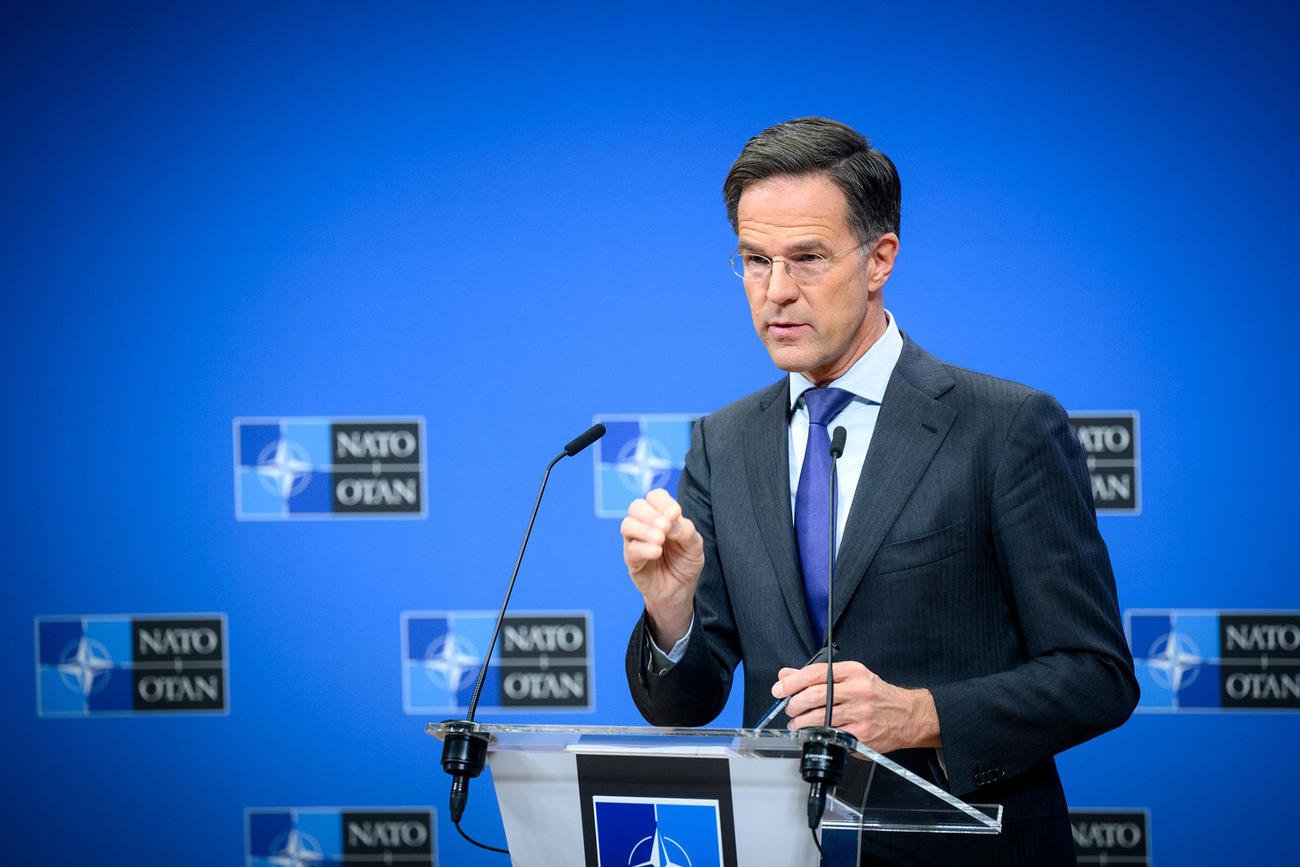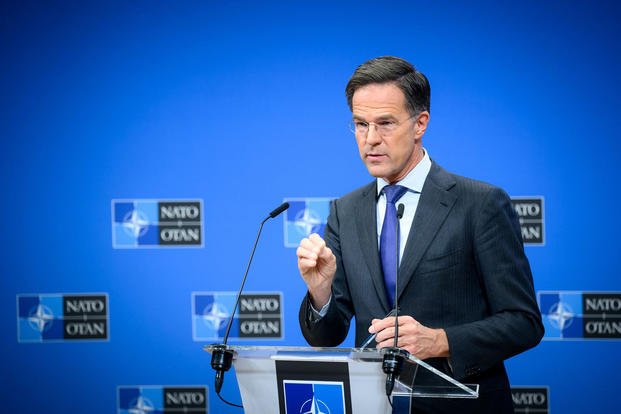

BRUSSELS— The new NATO Secretary General Mark Rutte currently does not see any danger of a Russian attack on the defense alliance’s territory, but looks to the future with concern.
“No fear for now,” he said in an interview with dpa when asked whether NATO countries should be afraid of Russia, but added: “If we do not spend more and produce more, we have a serious problem in four or five years.”
Russia massively expanded its defense production due to Moscow’s war against Ukraine. According to Rutte, NATO allies are not yet doing enough to counter this.
“We have to ramp up defense production, the defense industrial base,” he said. “They have to put in extra production lines, extra shifts, because we are not producing enough military stuff to protect ourselves longer term.”
Rutte expects new demands from Trump
Rutte also expects pressure from US President-elect Donald Trump, who threatened to withdraw from NATO during his first term in office if allies did not spend 2% of their gross domestic product (GDP) on defense.
“He will want us to do more. And he is right. We have to do more,” said Rutte.
NATO allies are committed to invest at least 2% of GDP in defense. And many European allies have now reached that goal, Rutte said.
In four to five years, however, there will be a problem with deterrence against Russia if defense spending is not increasing further, he said.
Rutte did not say whether NATO allies should aim to spend 3% of GDP or even more.
A decision on new spending pledges is expected to be made at the alliance’s summit next June.
During the US election campaign, Trump had announced that he considered it necessary to increase the NATO defense pledge to 3%. There have recently been reports that Trump could even call for 5%.
Germany is expected to spend around 2.1% of GDP on defense this year.
Clear words on Germany’s support for Ukraine
In the controversy over German Chancellor Olaf Scholz’s continued refusal to deliver long-range Taurus cruise missiles to Ukraine, Rutte made it clear that he would personally make a different decision and would not place any restrictions on the use of the weapons.
“We know generally (…) this type of capability is very important to Ukraine,” said the former Dutch prime minister.
However, it was not up to him to decide what allies should deliver, he added.
Nevertheless, Rutte firmly defended the German chancellor against criticism.
“We can commend him for the fact that Germany is now second to the US in providing €28 billion ($29.1 billion) in military aid to Ukraine, and in some calculations, even €34 billion. This is a huge amount and a street length ahead of many others, including some very big economies in Europe.”
This is an achievement for which Kiev can be grateful, he added.
Rutte also considers the sometimes harsh criticism of Scholz by Ukrainian President Volodymyr Zelensky to be unjustified.
“I have said many times to Zelensky ‘Stop criticizing Olaf Scholz’ because I think it is not fair,” he said.
Zelensky had recently criticized Scholz for having spoken to Russian President Vladimir Putin on the phone against his will. He has also repeatedly expressed his lack of understanding for Scholz’s refusal to deliver the German-made Taurus missiles that could strike deep into Russian territory.
Scholz has ruled out their delivery regardless of decisions taken by fellow NATO allies, arguing that it would pose a major risk of escalation.
Rutte said that it was important for Germany to realize however that its own values and security were at stake when it comes to the country’s Ukraine policy.
“If Ukraine would lose, we have to spend much, much, much more than we are spending currently on defense to make sure that the Russian threat is countered,” he stated.
Conflict in Ukraine will be a problem for the US, Rutte says
Rutte said he makes a similar argument in conversation with Trump.
Concerns in Europe are rising that Trump could reduce military support for Ukraine – even if this would mean that Russia can ultimately present itself as the winner of the war.
Russia’s cooperation with North Korea, Iran and China makes the conflict a threat to the US, the NATO secretary general said.
This means that Ukraine needs further military support before any potential peace negotiations, according to Rutte.
“What we are focussing on now is to make sure Ukraine enters any negotiations from a position of strength,” Rutte said.
©2024 dpa GmbH. Distributed by Tribune Content Agency, LLC.
© Copyright 2024 dpa. All rights reserved. This material may not be published, broadcast, rewritten or redistributed.
